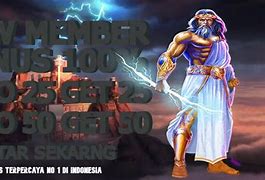
Sejarah Zeus
Non-panhellenic cults
In addition to the Panhellenic titles and conceptions listed above, local cults maintained their own idiosyncratic ideas about the king of gods and men. With the epithet Zeus Aetnaeus he was worshiped on Mount Aetna, where there was a statue of him, and a local festival called the Aetnaea in his honor.[354] Other examples are listed below. As Zeus Aeneius or Zeus Aenesius (Αινησιος), he was worshiped in the island of Cephalonia, where he had a temple on Mount Aenos.[355]
Although most oracle sites were usually dedicated to Apollo, the heroes, or various goddesses like Themis, a few oracular sites were dedicated to Zeus. In addition, some foreign oracles, such as Baʿal's at Heliopolis, were associated with Zeus in Greek or Jupiter in Latin.
The cult of Zeus at Dodona in Epirus, where there is evidence of religious activity from the second millennium BC onward, centered on a sacred oak. When the Odyssey was composed (circa 750 BC), divination was done there by barefoot priests called Selloi, who lay on the ground and observed the rustling of the leaves and branches.[356] By the time Herodotus wrote about Dodona, female priestesses called peleiades ("doves") had replaced the male priests.
Zeus's consort at Dodona was not Hera, but the goddess Dione — whose name is a feminine form of "Zeus". Her status as a titaness suggests to some that she may have been a more powerful pre-Hellenic deity, and perhaps the original occupant of the oracle.
The oracle of Ammon at the Siwa Oasis in the Western Desert of Egypt did not lie within the bounds of the Greek world before Alexander's day, but it already loomed large in the Greek mind during the archaic era: Herodotus mentions consultations with Zeus Ammon in his account of the Persian War. Zeus Ammon was especially favored at Sparta, where a temple to him existed by the time of the Peloponnesian War.[357]
After Alexander made a trek into the desert to consult the oracle at Siwa, the figure arose in the Hellenistic imagination of a Libyan Sibyl.
Create your first image using OpenArt.
With over 100+ models and styles to choose from, you can create stunning images.
Later representations
In Neoplatonism, Zeus's relation to the gods familiar from mythology is taught as the Demiurge or Divine Mind, specifically within Plotinus's work the Enneads[373] and the Platonic Theology of Proclus.
Zeus is mentioned in the New Testament twice, first in Acts 14:8–13: When the people living in Lystra saw the Apostle Paul heal a lame man, they considered Paul and his partner Barnabas to be gods, identifying Paul with Hermes and Barnabas with Zeus, even trying to offer them sacrifices with the crowd. Two ancient inscriptions discovered in 1909 near Lystra testify to the worship of these two gods in that city.[374] One of the inscriptions refers to the "priests of Zeus", and the other mentions "Hermes Most Great" and "Zeus the sun-god".[375]
The second occurrence is in Acts 28:11: the name of the ship in which the prisoner Paul set sail from the island of Malta bore the figurehead "Sons of Zeus" aka Castor and Pollux (Dioscuri).
The deuterocanonical book of 2 Maccabees 6:1, 2 talks of King Antiochus IV (Epiphanes), who in his attempt to stamp out the Jewish religion, directed that the temple at Jerusalem be profaned and rededicated to Zeus (Jupiter Olympius).[376]
Gaea, Uranus, Kronos, Rhea, and the Titans[]
The story of Zeus starts with the union of his grandparents, Gaea and Uranus, the earth and sky. Gaea bore many children from her union with Uranus, the Titans, giant divine beings of considerable beauty. Gaea also gave birth to the more monstrous one-hundred armed giants called Heka-Gigases and the one eyed giants called Cyclopsi. Though Gaea loved all her children Uranus was ashamed of the more monstrous of his children feeling they were not worthy to walk upon his beautiful wife and so he placed the Heka-Gigases and Cyclopsi in the nether-pits of Tartarus deep bellow the earth. Gaea was heartbroken and enraged so she carved a scythe of her very bone that would be able to cut Uranus himself, she offered it to whichever one of her children was willing to face their father and until he agreed to free the Heka-Gigases and Cyclopsi. The youngest of the Titans, Kronos, Titan of time, agreed to take up arms against his father. Kronos fought Uranus however he made no threats or demands and instead completely deposed his father, castrated him, forced him to surrender his power, and banished him. Kronos never freed his sibling from Tartarus either and so he earned the spite of Gaea, but under his rule the Titans became the first gods of mankind.
Though Kronos dethroned and castrated his father, before Uranus departed, he said one of Kronos's own children would surely do the same to him. Later the Titan of foresight, Prometheus, prophesied that indeed one of Kronos's own children would depose him. Kronos became fearful of his rule and when his wife/sister Rhea gave birth to their first child, Hestia, Kronos ate her rather than risk her growing up to depose him. Rhea would become pregnant and give birth five more times, Poseidon, Hades, Demeter, and Hera all met the same fate as Hestia. On Rhea's sixth and final pregnancy she could no longer bear to see her child killed and knew she would not be able to implore Kronos' mercy, so she made arrangements to have her son Zeus spared. Rhea warped rocks in swaddling cloths and let Kronos eat it thinking it was baby Zeus. Rhea had spirited Zeus off to be raised by her mother Gaea, the earth, Uranus' widow. Of course, Gaea was upset about Kronos dethroning her husband and banishing him and without keeping his word to free his siblings, so she was more than happy to support the young god prophesied to dethrone Kronos. Gaea raised and protected Zeus on a small island of Crete, she kept him hidden from Kronos in thick mists that surrounded the island and had nymph artisans working on it all day and night so the clanging of the shields by the Curetes would drown out young Zeus whenever he cried. Zeus was also cared for by the Curetes with the milk of the goat Amalthea and the bees in the cave. Gaea told Zeus of what his father had done to her husband, children, and his siblings grooming Zeus to one day take his revenge on Kronos. Gaea made Zeus swear that once he freed his siblings he would also free her children still sealed in Tartarus.
When Zeus came of age he set out to confront Kronos, before Zeus returned home he met Metis, Oceanid and Titaness of prudence. Zeus fell in love with Metis and they became lovers and before long Metis was conspiring with him to overthrow Kronos. Metis gave Zeus poison and gave it to Kronos, while Kronos was reeling from the effects of Metis' poison Zeus arrived and fought Kronos. By some accounts Zeus carved open Kronos' stomach and freed his siblings, while other accounts say that the poison induced vomiting and during the confrontation with Zeus Kronos vomited up all five of Zeus's siblings and the rock3, either way Zeus's siblings were all freed from their father's stomach and joined him in the fight. Kronos saw he was outmatched and called for the the Titans to protect him and attack the gods, thus began the "Titanomachy" or Titan God War.
Some of the Titans joined Zeus and the gods like Prometheus, who foresaw Zeus would win and wanted to be on the winning team, he also convinced his brother Epimethius, Titan of antiquity to join Zeus. Zeus and his siblings also garnered the attention of Hecate, Titaness of witchcraft who joined the gods having grown tired of Cronus' tyranny. While the other gods were still fighting the Titans Zeus freed the Heka-Gigases and Cyclopsi who eagerly joined the fight against Cronus. Eventually the Gods won over the Titans, Zeus imprisoned most of the defeated Titans in Tartarus, except for the Titan of strength Atlas, who Zeus punished by turning his strength against him by forcing him to hold up the sky. Of course Zeus did not punish the Titans who had joined his side, leaving Prometheus Epimethius, Hecate, Rhea, Metis, Leto and the monstrous titans. Zeus assumed the new throne as king of the heavens and the new guardian of mortal-kind. Zeus set up a great palace on top of Mont Olympus he made Metis his first wife and ruled the world from mountain tops.
In this new age man-kind would become the dominant mortal life form by being given the gift of intellect but they would also be given sin and discord. Zeus first split up the rule over the world with his brothers, his oldest brother Poseidon, god of the Sea was given the vast oceans to rule once he rested control of them from Gaea's second husband Nereus. Hades, god of wealth was given the Underworld to rule where he could keep an eye on the deepest gates of Tartarus seeing to it they were never opened and establishing a kingdom of the departed souls. Zeus himself created his palace on Mount Olympus and established eleven other positions for other gods as his vassals, Zeus and his eleven brethren were refereed to as the Twelve Olympians commonly. The Twelve Olympians shared in the powers of the Titans that Zeus had inherited and each among them was given a formal throne in the meeting halls of Olympus. Not all Greek gods could claim to be one of the Twelve Olympians but the ones that did were considered the most important. Some gods such as Pan coveted the position of being one of the twelve, others like Hades openly refused to accept the title, considering the power not worth being subject to Zeus' authority. Zeus himself was firmly in control of the Twelve Olympians and could retract their empowered abilities at a moment's notice if they turned on him, this however still made his five siblings a substantial threat since all had claimed power from the titan' personally.
Zeus feared he would be deposed by his first child just as his father and grandfather had so shortly after she became pregnant Zeus would divorce Metis and began to court his sister Hera. Hera would become Zeus' queen despite being his second wife however Metis was made Zeus' personal adviser. Though Metis and Zeus had an easy divorce Prometheus warned Zeus that the child would be greater than him. Zeus was afraid of his child but did not wish to harm Metis partly because of their history and partly because he depended on her as his adviser but Zeus eventually found a way to neutralize Metis without sending her to Tartarus. After much thought one day Zeus challenged Metis to a game they played where each god would try to turn into a smaller animal than the other, Metis won the game by eventually turning into a may-fly, Zeus congratulated her and then swallowed her whole. Metis flew into Zeus' head and was absorbed into his brain thus Zeus always had Metis's sound advice and as part of him he never had worry about the child being born...or so he thought. One day Zeus was plagued by terrible headaches. Though he tried to ignore it at first the headaches eventually became so bad he doubled over in pain. His by then son Hephaestus cracked open Zeus' head to release the pressure and out emerged a fully grown and clothed goddess, Metis' daughter, Athena who had grown in Zeus' head even as her mother was becoming part of his brain. Athena had been clothed by Metis and brought up in Zeus' subconscious but eventually grew too big to be contained within. To Zeus' surprise Athena pledged her loyalty to her father rather than challenging him, for this Athena became Zeus' favorite child. In time Athena was praised even more than Zeus and became a major goddess through-out Greece despite being a second generation god. In this way Prometheus' prediction came true for though greater than Zeus, Athena maintained loyalty to her father and in this way the cycle of ascension among the gods came to a conclusion.
By the time Athena was born Zeus had already had two sons and a daughter via his union with Hera. The first was Hephaestus, the god of smithing the second was Ares, god of war. Ares was well liked by his mother originally, Hephaestus was born considerably ugly to the point where he frightened Hera when she went to hold him and tossed him from Olympus to earth. The fall crippled Hephaestus from a young age. Hephaestus spent his years trying to win his mother's affections and became a smith crafting her perfect jewelry. By extension this also meant Zeus would be given similar gifts. Once an adult Hephaestus began supervising the Elder Cyclopi who made Zeus's lightning bolts. For his devotion Zeus gave Hephaestus one of the twelve thrones of Olympus. Ares had also won himself a throne, partially because Hera had insisted that one of their only legitimate children be among the twelve Olympians but also because Ares had enthusiastically stirred-up and resolved several wars in the name of his parents. Zeus and Hera's daughter was Eileithyia, goddess of mid wives. Eileithyia was less worshiped than her siblings and so Hera made her a totem in her temples thus Eileithyia was worshiped by association with Hera. Though Eileithyia was not prominent enough to earn herself a spot as one of the twelve Olympians she became known through-out Greece due to her mother's influence.
Zeus would adopt the goddess Aphrodite as his daughter. Aphrodite's birth has two conflicting origins' one states that when Cronus took over he castrated Uranus and threw his manhood into the sea- this would result in Aphrodite manifesting from it's remains. Another myth states that Aphrodite was the unclaimed daughter of Nerius, the sea god. Either way Aphrodite first came to the world from the sea, walking out of it completely naked. She was full grown by the time she emerged from the ocean and Zeus was king by then. Zeus spotted Aphrodite and not wishing for their to be any ambiguity over her lineage decided to welcome her into the family. Aphrodite was the goddess of beauty and often associated as goddess of love and sex as well. Zeus would also give birth to the goddess Persephone with Demeter. As the myth goes Poseidon demanded he be permitted to court Hestia as Zeus had done to Hera, Zeus conceded and began pairing his remaining siblings Hades and Demeter, though the two seemed not to like each-other. When Poseidon returned saying Hestia wished to remain a virgin Zeus sided with Hestia that her virginity was hers to keep, Poseidon, still very upset then switched his interests to Demeter and demanded her hand instead. Zeus agreed but to get back at his entitled brother Zeus decided to get Demeter pregnant while he was still trying to woo her. Demeter, being far more open with sex than she was with marriage, had no issues sleeping with Zeus though Poseidon was wooing her and Zeus was already married. Poseidon's interest in Demeter waned long before he found out she was pregnant but Demeter was more than happy to raise the child as a single mother. Zeus had pledged Persephone's hand to Hades to make-up for humoring Poseidon by giving away Hades' intended fiance'. Though Demeter raised Persephone herself Zeus still checked in on and looked after his daughter.
Zeus would take on the titaness, Leto, as lover, however Hera was no longer willing to humor such activities. Metis was married to Zeus before her; Demeter was never sexually restrained by concepts like marriage, had taken favors from Zeus covertly and did not associate sex with love; But with Leto Hera saw a disturbing pattern and chased Zeus for his perspicuity. According to early stories by the time Hera found out Leto and Zeus were an item Leto was pregnant. Zeus fled his wife's wrath and before leaving to chase him Hera cursed Leto not to be able to give birth on Olympus or in any earthly society. Zeus spent months fleeing Hera, changing shape by assuming the forms of storms, the elements, animals and even humans in his attempts to lose her. During this time, Leto became more and more pregnant but was not able to give birth. Zeus raised an island from the sea and sent Eileithyia to meet Leto there to help her give birth. Since the land was newly formed technically it was not part of any mortal realm and thus Hera's decree did not need to apply. Eileithyia, wishing to release Leto's pain used the loop-hole her father had created and helped Leto give birth to the twins Apollo and Artemis. Once Hera gave-up the chase Leto bought Apollo and Artemis to meet their father. Hera refused to permit Leto to take a seat on Olympus, but Zeus said instead he would allow her children too take their thrones there. Though Hera remained bitter about Leto, both Apollo and Artemis were very protective of their mother and Hera ended up needing to hold her tongue in the halls of Olympus to maintain harmony. Zeus was said to be very loving toward Apollo and Artemis and gave them both bows and taught them to hunt from a young age to be great monster slayers like him.
Situs Zeus Slot 🚀 dari Zeus Slot Pragmatic
Mengenai permainan Zeus Slot ini ditemukan dan dipelopori oleh zeus slot pragmatic ditambah perkembangan teknologi hingga memukau kakek zeus slot jadi terbitlah zeus slot88. Zeus Slot Pragmatic semakin dikenal hingga memiliki pengikut setia di seluruh indonesia.
Jaman kini hampir semua pemain slot atau biasa disebut sebagai slotters sudah pasti mengenal dengan baik tentang petir perkalian 1000 dari kakek zeus slot ini. Tak terhitung jumlah slotters telah merasakan keganasan petir kakek zeus dari zeus slot satu ini, terlebih lagi zeus slot ditemani banyak opsi link zeus slot.
Tersedia Banyak macam permainan slot dari provider pragmatic play akan tetapi slot dengan petir memukau hanya zeus slot game, mengapa demikan? jelas karena zeus slot memiliki perkalian yang tidak kaleng-kaleng dengan perkalian fantastis maka menjadi milyarder dari zeus slot bukanlah hal mustahil untuk dilakukan apalagi kali ini zeus slot diperbaharui dengan mode zeus slot demo sehingga slotters dapat bebas melakukan rekonstruski sebelum bermain zeus slot.
Mengulik Tipis Tips & Trik Bertemu Kakek Zeus Slot ⚡
Kakek Zeus Slot umumnya agak jarang ditemukan baik dari zeus slot demo maupun permainan nyata akan tetapi di blog ini akan kami beritakan beberapa tips tipis agar dapat bertemu kakek zeus slot pragmatic. Simak dan Pahami cara dibawah ini:
Kepala Dinas Pendidikan Aceh, Marthunis, ST., D.E.A., bertindak sebagai Pembina Upacara di SMAN Modal Bangsa pada Senin, 15 Juli 2024. Upacara tersebut dihadiri oleh Kacabdin, Pengawas, guru dan staf serta siswa SMAN Modal Bangsa. Dalam amanah upacara, Kadisdik Aceh berpesan kepada siswa-siswi baru SMAN Modal Bangsa agar dapat mengikuti MPLS dengan sebaik-baiknya. “SMAN Modal Bangsa […]
Kampf gegen die Giganten
Die Herrschaft der olympischen Götter unter Zeus wurde durch einen Angriff der Giganten bedroht. In der Gigantomachie aber besiegten die Götter die Giganten.
Der Schild des Zeus heißt Aigis oder Ägis (griech. Ziegenfell). Dieser wurde von Hephaistos geschmiedet und wird meist als schuppen- und schlangenbewehrter Halskragen dargestellt. Die Aigis ist Sinnbild der schirmenden Obhut (Ägide) der Götter.
Verheiratet war Zeus mit seiner Schwester Hera, mit der er vier Kinder hatte, Ares, Hebe, Eileithya und Hephaistos. Aber er hatte auch viele Liebschaften, unter anderem mit der Göttin Leto, einer Tochter des Titanen Koios, die ihm Apollon, den Gott des Lichts und der Musik, und Artemis, heilbringende Göttin der Natur und der Jagd, gebar, oder Leda, von der er die Dioskuren Kastor (Castor) und Polydeukes (Pollux) bekam. Daneben war er auch Vater vieler Nymphen, Halbgöttinnen und Sterblicher. Diese Liebschaften waren nie von Dauer, vor allem wegen Heras maßloser Eifersucht. Um die Kinder, die aus diesen Seitensprüngen entstanden waren (unter anderem Herakles und die schöne Helena), kümmerte er sich aber. Die einzige Liebschaft von Dauer war wahrscheinlich die zum Königssohn Ganymed. Dieser war so schön, dass Zeus ihn in Gestalt eines Adlers auf den Olymp entführte. Dort diente er ihm als Mundschenk. Auch die Göttin Aphrodite soll nach Homer eine Tochter von Zeus und der Dione gewesen sein. Geläufiger ist jedoch die Version des Hesiod, nach der sie aus dem Schaum (daher ihr Name, von griech.: aphros=Schaum) entstand, der sich um die abgeschnittenen Genitalien des Uranos im Meer vor Kythera gebildet hatte. Seine Lieblingstochter Athene, die Göttin der Weisheit, entsprang seinem Kopf, nachdem er von Hephaistos geöffnet worden war. Auch andere Götter stammen von ihm ab, wie Dionysos, der Gott des Weines (siehe Schenkelgeburt), die Göttin Iris, die als Botschafterin die Kommunikation zwischen Menschen und Göttern sicherstellte, oder Hermes, der Götterbote und Schutzgott der Kaufleute und der Diebe.
Um Frauen zu verführen, nahm Zeus oft eine andere Gestalt an:
Das älteste und erste in der Antike berühmte Zeus-Orakel befand sich im Eichenhain von Dodona (die Eiche ist ebenfalls der heilige Baum des Zeus). Auch in Olympia gab es ein Zeus-Orakel; hier wurde der Zeus Olympios verehrt. Auf Kreta nahmen Kulte Bezug auf seine Geburt und Kindheit mit Höhlen- und Geburtskulten. Siehe auch Höhle von Psychro, Idäische Grotte.
Verehrt wurde Zeus als Allgott, als denkendes Feuer, das alles durchdringt, als Vater der Götter und Menschen, als Gott des Wetters, als Schicksalsgott usw. Die Epiphanie des Zeus ist stets der Blitz, etwa bei Homer.
Da Zeus als Götterherrscher galt, war sein Kult oft mit Monarchen verbunden. So ist bezeichnend, dass der große Zeustempel in Athen, das Olympieion, während der Tyrannis des Peisistratos begonnen, durch König Antiochos IV. fortgeführt und erst unter Kaiser Hadrian vollendet wurde, während man die Bauarbeiten zur Zeit der attischen Demokratie ruhen ließ.
Die Zeusverehrung erlosch erst am Ende der Spätantike um das Jahr 600 n. Chr.
Je nach Art der Verehrung erhielt Zeus verschiedene Beinamen, etwa:
Here are some of the shows you're missing.
Link Zeus Slot dipersembahkan oleh kakek Zeus dari slot zeus gacor lengkap link zeus slot pragmatic beserta slot demo zeus 1000 dijamin gacor berjamaah bermain situs zeus slot 2024.
Zeus in der griechisch-römischen Philosophie
Zeus spielt auch eine wichtige Rolle in der Philosophie der Antike. Die Orphiker sahen Zeus als den Weltgrund an,[23] der Platoniker Xenokrates identifizierte Zeus mit dem kosmischen Nous,[24] in der Philosophie der Stoa wurde Zeus als die Urkraft oder kosmische Vernunft aufgefasst.[25]



